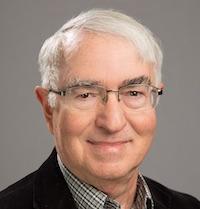Sparking an Interest in Chemistry
UNC’s Chemistry master’s (education emphasis) extends and builds upon the knowledge and skills learned at the undergraduate level and, through the science education component, develops skills necessary to become increasingly effective in the chemistry classroom.
Successful completion of this degree will enhance advancement opportunities in the education field and provide a teacher advanced training in content and pedagogy. The degree can also qualify graduates to teach at the junior or community college level.
Your Future in Chemistry
A master’s degree in chemistry with the Education Concentration qualifies you for teaching chemistry at the high school level, or at the junior or community college level.
Consider UNC's M.S. in Chemistry: Education Concentration if you are:
- Interested in advanced research and learning more about chemistry
- Seeking a collegial environment, with one-on-one mentorship from experienced faculty
- Interested in teaching chemistry
You’ll learn:
- Advanced laboratory techniques
- Laboratory and/or educational research
- Academic writing
- Advanced topics in chemistry
- Hands-on work with modern instrumentation
Sample courses:
- Chemical Spectroscopy
- Environmental chemistry
- Toxicology
- Problems in Teaching Chemistry
- Science Education Research
Beyond the Classroom
UNC has modern, fully equipped chemistry labs that include state-of-the-art instrumentation. Develop high-level skills in nuclear magnetic resonance spectroscopy, x-ray crystallography, mass spectrometry, chromatography, atomic absorption and other advanced techniques.
Where can your degree take you?
- Doctoral program in Chemistry or Biochemistry
- Government or nonprofit agency
- Teaching position in high school (teaching license requires additional coursework)
- Junior or community college level teaching
Faculty Spotlight

Jerry Suits
Ph.D. in Science Education
Dr. Suits earned earned his Bachelor of Science Education in Secondary Education in Chemistry and Physics at New Mexico State University, followed by a master’s in Biochemistry at Southwest Texas State University and a doctorate in Science Education from the University of Texas, Austin. He also completed a fellowship in Curricular Enhancement at Baylor College of Medicine.
His research focuses on the factors that affect how students learn chemistry. He has found that most students tend to be memorizers (a learning style) until they have acquired a certain amount of chemical knowledge (a critical mass) that allows them to become conceptualizers (i.e., they are able to form concepts out of facts and rules). Conversely, some learners continue to use only memorization skills that rely on algorithms rather than thinking strategies. All of these cognitive processes are probably interlaced with affective processes, that is, learners either appreciate the real world applications of chemistry or they avoid this integration.
Specifically, Dr. Suits is studying the following research topics:
- How dynamic visualizations (i.e., animations and simulations) can encourage active learning and develop thinking strategies that rely on visualization and other mental processes;
- How laboratory instruction that targets the essence of scientific investigations (i.e., predict-observe-explain chemical phenomena) can help students understand chemical phenomena;
- How an application-based textbook (e.g., Chemistry in Context) affects students' motivation and conceptual understanding of chemistry;
- How students' conceptual understanding of molecular processes can be assessed via their drawings and explanations (i.e., their mental models)
- How the integration of lecture (theory) and laboratory (experiments) can help students develop meaningful learning strategies that express "creativity" in the sciences (i.e., generative and analytical thinking.)
- How motivation and cognitive factors affect chemistry achievement;
Graduate students tend to focus on only one of these topics during their graduate studies. This "focus" allows them to be capable of teaching chemistry with a greater awareness of the different ways that students approach learning chemistry topics or to conduct their own independent research agendas.
Ready for what's next? Here's what you need to know.
If there's anything else we can do, be sure to connect with us. We're only a shout away.
Still not completely sold? We understand. Here's more information on costs and funding and how to apply.


